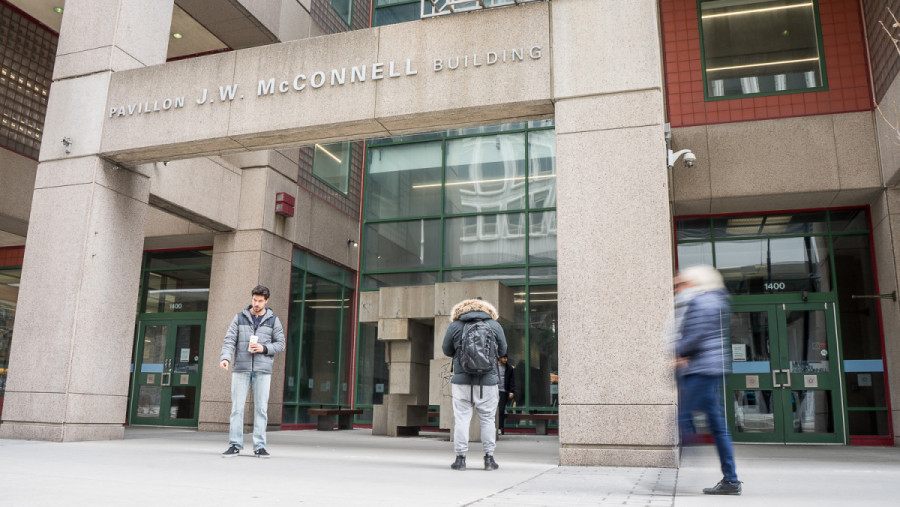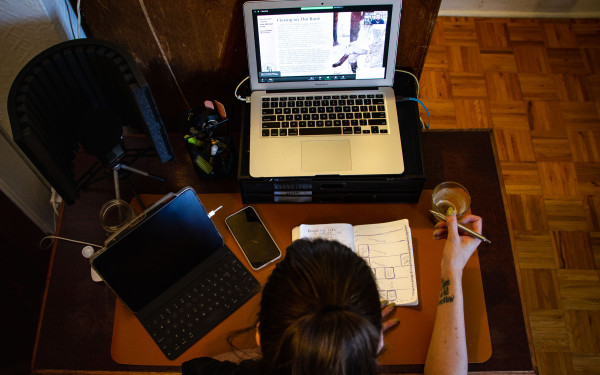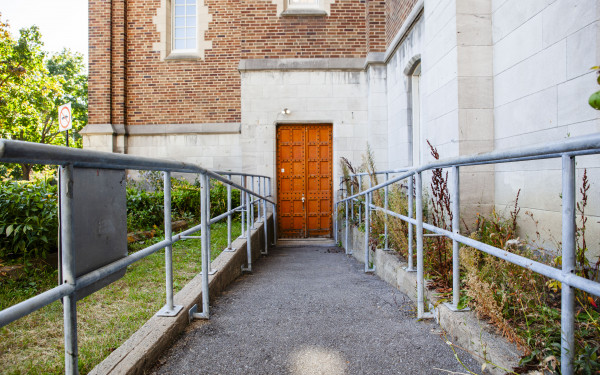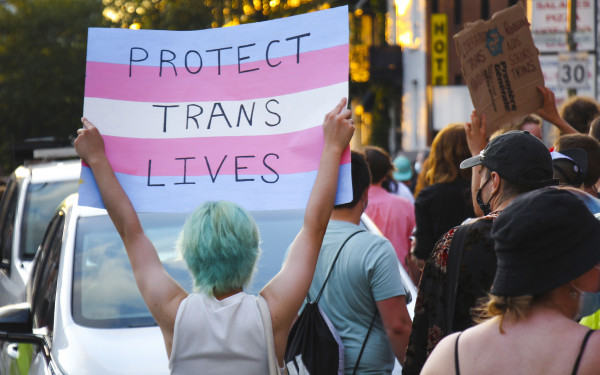The Mapping Project Is Uncovering Barriers for Queer, Trans, and Disabled Concordia Students
The Centre for Gender Advocacy Will Reveal Its Recommendations in May
The Mapping Project, launched last semester by Concordia’s Centre for Gender Advocacy, aims to determine the needs of trans, queer, and disabled students at the university.
“There are a lot of gaps across the university regarding the knowledge professors and service providers have when it comes to treating trans, queer, and disabled students with respect and addressing their needs,” said Shayna Hadley, one of the Mapping Project’s coordinators.
“There are also gaps in addressing topics like gender diversity and sexuality and disability in the classroom environment,” they said.
The goal is to create a baseline of knowledge about gaps that need to be filled and provide recommendations to the university. Right now, professors and support staff are ill-equipped to handle trans, queer, and disabled students’ needs, says Hadley, often lacking appropriate training and knowledge.
This means the onus is on the students to advocate for themselves, which has proven to be a taxing experience for many. One of the main complaints the Mapping Project has heard so far is that trans students bear the burden of having to correct transphobic assumptions. They say professors are often misguided in handling these situations and don’t have up-to-date knowledge.
Trans students feel pressure to out themselves by revealing to the classroom that they are trans in order to correct the situation.
According to Hadley, the goal of the Mapping Project is to “shift that dynamic of students having to advocate for themselves, and instead have professors and staff have more access to more resources to better understand the needs of queer, trans, and disabled students.”
Another big problem the centre hopes to bring to light with this initiative is a lack of access to gender-neutral and individual bathrooms on campus. While there are many gender-neutral bathrooms on campus, they’re locked and are only accessible by keycard.

Many trans, queer, and disabled students have voiced that this system doesn’t work and going to the bathroom has become a humiliating experience for them. In many cases, they are denied access to these washrooms by staff because they “don’t look disabled.”
Hadley points to the university’s very narrow idea of what you have to look like in order to access these bathrooms.
“People look a variety of different ways and will have many different reasons they have to access that washroom,” said Hadley.
Using themself as an example, Hadley explains how their spinal disability causes chronic pain. This disability, like many pain-related disabilities, is an invisible one.
“The university is built around the idea that some bodies and minds do not deserve to be there.” —Shayna Hadley.
Further exacerbating accessibility issues, individual washrooms aren’t on every floor or every building. The university website doesn’t have a map of these bathrooms available to students online, unlike many other universities, meaning some students will go through their entire program without knowing that a map exists.
They often only know of a few bathrooms and might not be able to get into them. For these students, this means structuring their time and class schedule around washroom access.
The thought process becomes, “So, if I’m taking a class in the EV building, which washroom can I access on time in order to not be considered late for my class in the Hall building, and what will the repercussions be?” explained Hadley.
Unlike many past initiatives by the university that were steered by administration, the Mapping Project is a collaborative enterprise. The recommendations are based off of the survey and interview findings and will be reviewed by trans, queer, and disabled students before being made public.
The barriers queer, trans, and disabled students face are structural
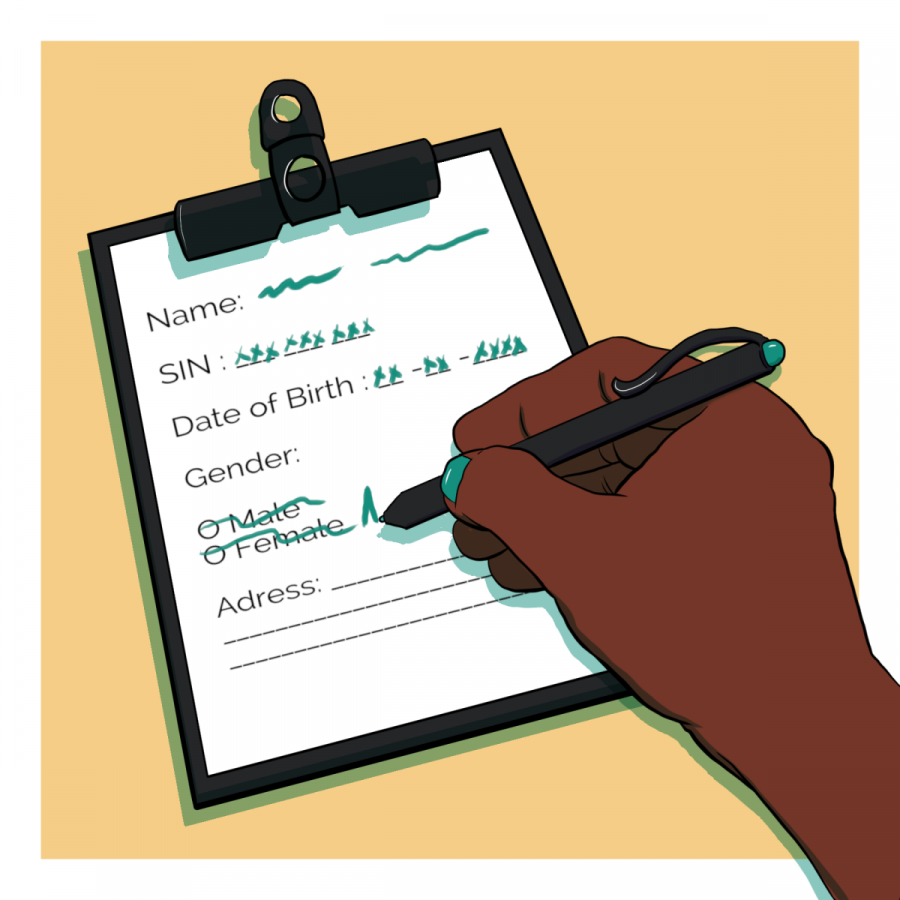
The difficulties trans, queer, and disabled students face won’t go away even if the university changes some of its policies based on the Mapping Project’s findings. As Hadley points out, these issues are deeply entrenched in the university system.
“The university is built around the idea that some bodies and minds do not deserve to be there,” said Hadley.
The Mapping Project is basing its recommendations off of an online survey and interviews with 10 students who are queer, trans, or disabled. Concordia professors and service providers are also participating in online surveys.
Interested Concordia students can complete the Centre for Gender Advocacy’s online survey until Feb. 7. If the online survey is not accessible to some students, they are welcome to call the centre and complete a verbal interview. So far, around 200 students have completed the online survey.
The results will be compiled and made public alongside their recommendations this May.

